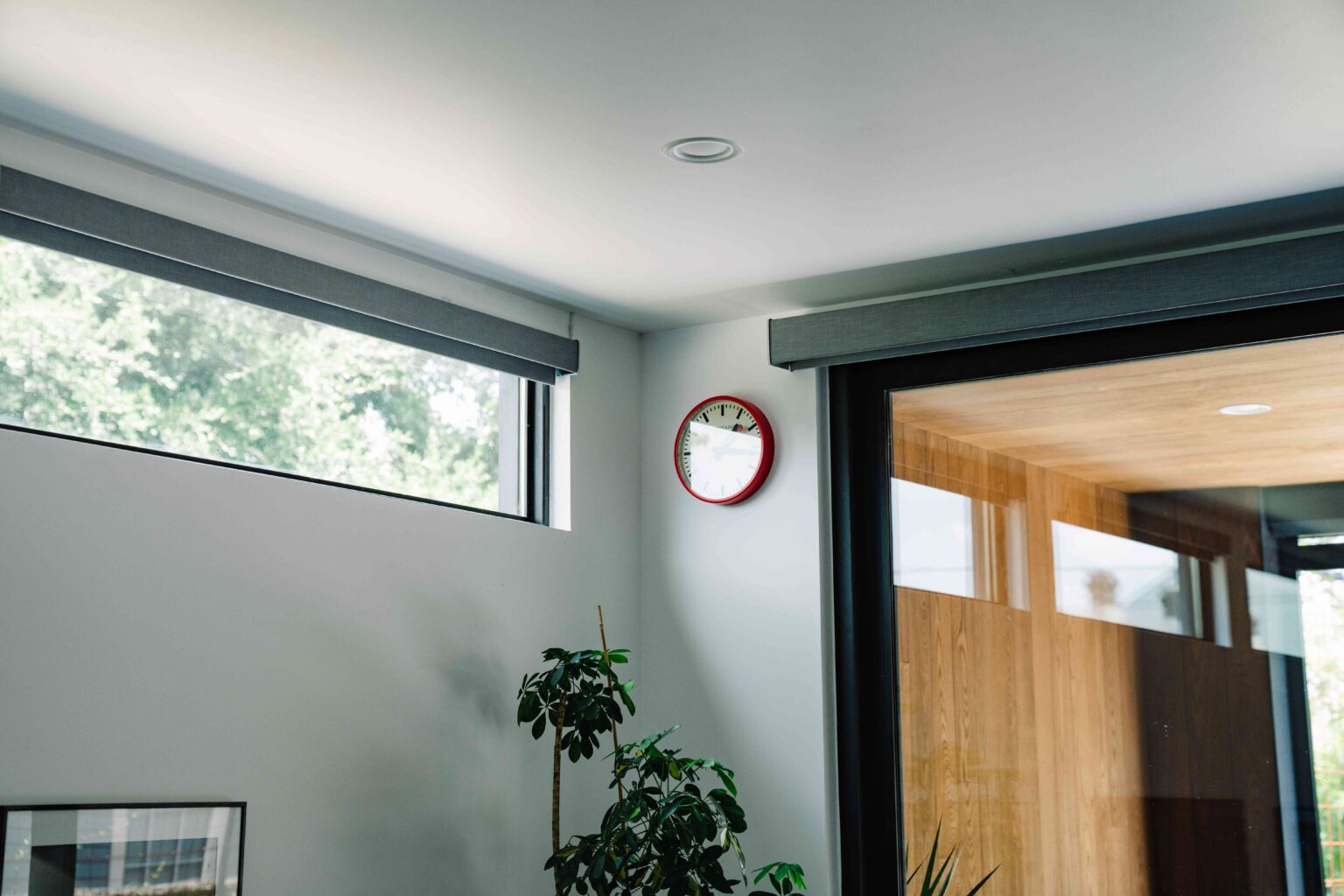If you’re looking to upgrade your space by installing new windows and are craving an influx of natural light, clerestory windows are an excellent option to consider. Below, we’re sharing information on what clerestory windows are, their benefits and disadvantages, and more.
Meet the Expert
- Kyle Resmondo is a master builder and home renovator at MKRedBuild.
What Is a Clerestory Window?
Clerestory windows are positioned high up on a wall to provide additional light within a space.
“This type of window is not aligned directly over a door or another window below it, thereby preserving wall space underneath while allowing natural light to penetrate the upper portion of the room,” Kyle Resmondo, master builder and home renovator at MKRedBuild, explains.
Clerestory windows are not to be confused with transom windows, which are smaller windows positioned above a door or directly above another window.
Clerestory windows have been used since ancient times but more recently were a key component of mid-century modern architecture, Resmondo notes.
Want more design inspiration? Sign up for our free daily newsletter for the latest decor ideas, designer tips, and more!
Benefits of Clerestory Windows
Allow for Natural Light
Clerestory windows supplement any traditional windows within a space to amplify the flow of natural light into a room. Resmondo explains how these windows are useful in situations where the exterior view is not ideal, but natural lighting is highly desired by the client.
Privacy
Clerestory windows ensure that a room is brightly lit yet still private due to their high-up position; neighbors cannot see through these windows meaning that they do not have to be covered unless one wishes to do so. Resmondo likes to place clerestory windows above showers and beds for this reason.
Bring the Outside In
Love to feel as though you’re surrounded by nature? Clerestory windows are for you.
“These windows can enhance the feeling of being connected to the outdoors without compromising privacy, creating a seamless indoor-outdoor experience,” Resmondo says.
Save Wall Space
Don’t let sizable windows prevent you from displaying furniture against the wall. Since clerestory windows are so high up, you can easily enjoy the best of both worlds in your home.
Elevated Look
Clerestory windows will make any room appear more visually interesting and grand.
“These windows create a visually striking aesthetic by being positioned near the roofline or at the top of the wall, adding architectural interest and elegance to a space,” Resmondo says.
Disadvantages of Clerestory Windows
Difficult to Clean
Due to being placed so high up, clerestory windows can be difficult to clean, experts note.
Hard to Find Suitable Window Treatments
On a similar note, due to clerestory windows’ height, it can be difficult (and expensive) to add window treatments. Clerestory windows may require automated or hardwired solutions that can add to the overall cost and complexity of the installation, Resmondo says.
Overheating in the Summer and Heat Loss in Winter
Since clerestory windows are generally less energy efficient than regular windows (particularly when north-facing), they can result in a room overheating in the summer and experiencing heat loss in the winter, resulting in the need for extra fans and heaters to ensure a comfortable room temperature.
How to Choose Clerestory Windows
When choosing clerestory windows, you will want to consider the various styles available. As Resmondo notes, clerestory windows can be made from a wide variety of materials, including vinyl, steel, wood, and more.
“The choice of material often depends on the aesthetic goals and practical considerations,” he says. “For instance, wood may be used to match historical neighborhoods, while aluminum or steel might be preferred for a modern look.”
You will also want to note the differences between north-facing and south-facing clerestory windows. As Resmondo shares, keep in mind that south-facing clerestory windows will receive more sunlight and will provide maximum brightness to your space—as such, they can result in energy savings. North-facing clerestory windows will bring in a softer light.
“Ultimately, the choice between north and south-facing clerestory windows depends on your specific lighting needs, views, and how you plan to use the space,” Resmondo says.
FAQ
-
Clerestory windows are positioned high up on a wall, whereas transom windows are positioned above another window or above the door.
-
Clerestory windows allow light to stream into a space while ensuring privacy given their high up position.
-
The word is pronounced as though it is “clear-story.”
Read the full article here

